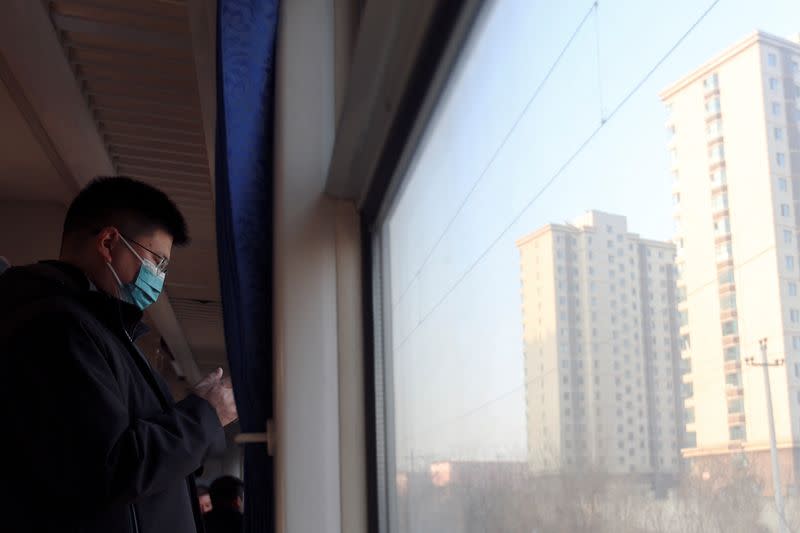Chinese banks approve $17 billion of 'whitelist' loans for property sector

By Clare Jim and Ziyi Tang
HONG KONG/BEIJING (Reuters) -Chinese banks have approved property development loans of $17.20 billion as part of a special mechanism to inject liquidity into the sector, but detailed statements show some loans to distressed developers are only adjustments of existing credit.
Banks are adjusting the repayment plans or extending the maturity of some existing loans and not granting new credits, bankers and developers said.
Launched last month, "Project Whitelist", as it is known, allows city governments to recommend residential projects to banks as being suitable for financial support, and to coordinate with financial institutions to meet project needs.
It is a key plank of Beijing's efforts to revive a property sector reeling under a debt crisis and boost confidence, although adjusting existing loans will not ease the liquidity squeeze for distressed developers.
Late on Tuesday, the housing ministry said 214 cities nationwide had set up the mechanism, recommending more than 5,300 projects to banks.
Of this tally, development loans worth 29.4 billion yuan ($4.09 billion) have been issued, covering 162 projects in 57 cities.
It added that 123.6 billion yuan ($17.20 billion) of development loans have been approved, citing data from some of the state-owned and commercial banks.
Banks that decline any loans to the "whitelist" projects must explain their decision to the financial regulators, the ministry said.
"Whitelist" projects of distressed developers have also been granted loans by banks, local governments and financial institutions said in separate statements this week, after news late in January that state-owned or state-backed firms formed the bulk of the approved developers.
The first loan granted under the mechanism in the northeastern city of Dalian was financing of 212 million yuan for a project of Country Garden, China's largest private property developer, which defaulted on its $11-billion offshore bonds in October, media said on Wednesday.
However, they added that the loan, from Industrial and Commercial Bank of China, consisted of adjusted repayment arrangements for existing credit. The reports gave no details.
In a statement, the Citic Bank branch in the eastern city of Suzhou said it readjusted repayments on a loan of 1.5 billion yuan to a local "whitelist" project of Country Garden.
Last week brokerage CSL International estimated that new loans would make up a third of the approved loans under the mechanism.
The project comes at a time when developers do not have the money to repay banks, and so existing loans need to be replaced with new loans or extended, the branch head of a city commercial bank said, seeking anonymity as the issue is sensitive.
China aims to ramp up financing for residential projects but banks' reluctance to lend to the sector could be a major obstacle for distressed developers most in need of funds.
The Hang Seng Mainland Properties Index rose 3.8% on Wednesday, versus a 1.6% gain in the broader market.
($1=7.1842 yuan)
(Reporting by Clare Jim in Hong Kong and Ziyi Tang in Beijing; Editing by Shri Navaratnam and Clarence Fernandez)

 Yahoo Finance
Yahoo Finance 